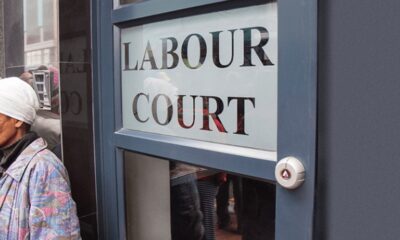Business
SA Business Groups Slam Race-Based Hiring Laws as Unconstitutional and Harmful

South Africa is headed for a legal and political clash as leading business organisations Sakeliga and the National Employers’ Association of South Africa (NEASA) launch a strong challenge to the newly implemented Employment Equity Amendment Act (EEAA). The groups are calling the regulations “unconstitutional, impossible, and harmful” to both the economy and the social fabric of the country.
The law introduces sectoral numerical targets for racial and gender representation across 18 industries. These targets apply to four occupational levels – junior, middle, senior, and top management – and are expected to come into effect by September 2025.
While the Department of Employment and Labour insists these are flexible targets and not quotas, the regulations set specific percentages based on race, gender, and disability. Critics say this introduces a de facto quota system that discriminates against white males and restricts business autonomy.
“This is perhaps the most sweeping racialisation of the labour market in democratic South Africa,” said Sakeliga CEO Piet le Roux. “It threatens to destroy hundreds of billions of rands in economic value.”
NEASA and Sakeliga have announced joint legal action to interdict the operation of the new rules, citing infringement on constitutional freedoms and damage to economic productivity. They warn that the EEAA places the burden of transformation solely on business, regardless of local labour market realities.
The DA has also entered the legal fray, challenging the act on constitutional grounds. It argues that Section 15A violates Section 9 of the Constitution, which guarantees equality before the law and prohibits unfair discrimination.
“A law that forces employers to fire or refuse to hire people based on race is not redress – it is unconstitutional discrimination,” the DA said in its submission.
Government’s Position
The Department of Employment and Labour says the new regulations aim to address racial imbalances in top management, citing its 2024 Employment Equity Report, which found that white South Africans (7.3% of the population) still held 62.1% of top management positions.
Minister Nomakhosazana Meth has defended the regulations, stating that they are critical to achieving “equitable representation” of historically disadvantaged groups in the workplace.
The African National Congress (ANC) has also pushed back against the criticism. ANC Secretary General Fikile Mbalula called the DA’s legal challenge an act of “hatred for transformation”, accusing the party of being stuck in “apartheid nostalgia.”
“Transformation, equity, and diversity are not up for negotiation,” said Mbalula. “We will not surrender to elitist legal posturing.”
Business Community Response
Sakeliga and NEASA maintain that the rules are unworkable in practice, given that demographic variations across regions make uniform targets unrealistic.
“The state is acting unconstitutionally,” the organisations said in a joint statement. “Under the guise of ‘transformation’, the EEAA insists on a stifling stagnation where all activity must conform to racial ratios.”
The business groups are urging employers to seek professional legal advice tailored to their specific situations. NEASA has committed to supporting businesses to protect their workforce, autonomy, and long-term sustainability in the face of the new law.
With legal battles now pending from multiple corners and national debate heating up, the Employment Equity Amendment Act is shaping into one of the most significant labour policy flashpoints in post-apartheid South Africa. For businesses, the stakes are not just legal – but operational and economic.
{Source: BusinessTech}
Follow Joburg ETC on Facebook, Twitter , TikTok and Instagram
For more News in Johannesburg, visit joburgetc.com


























